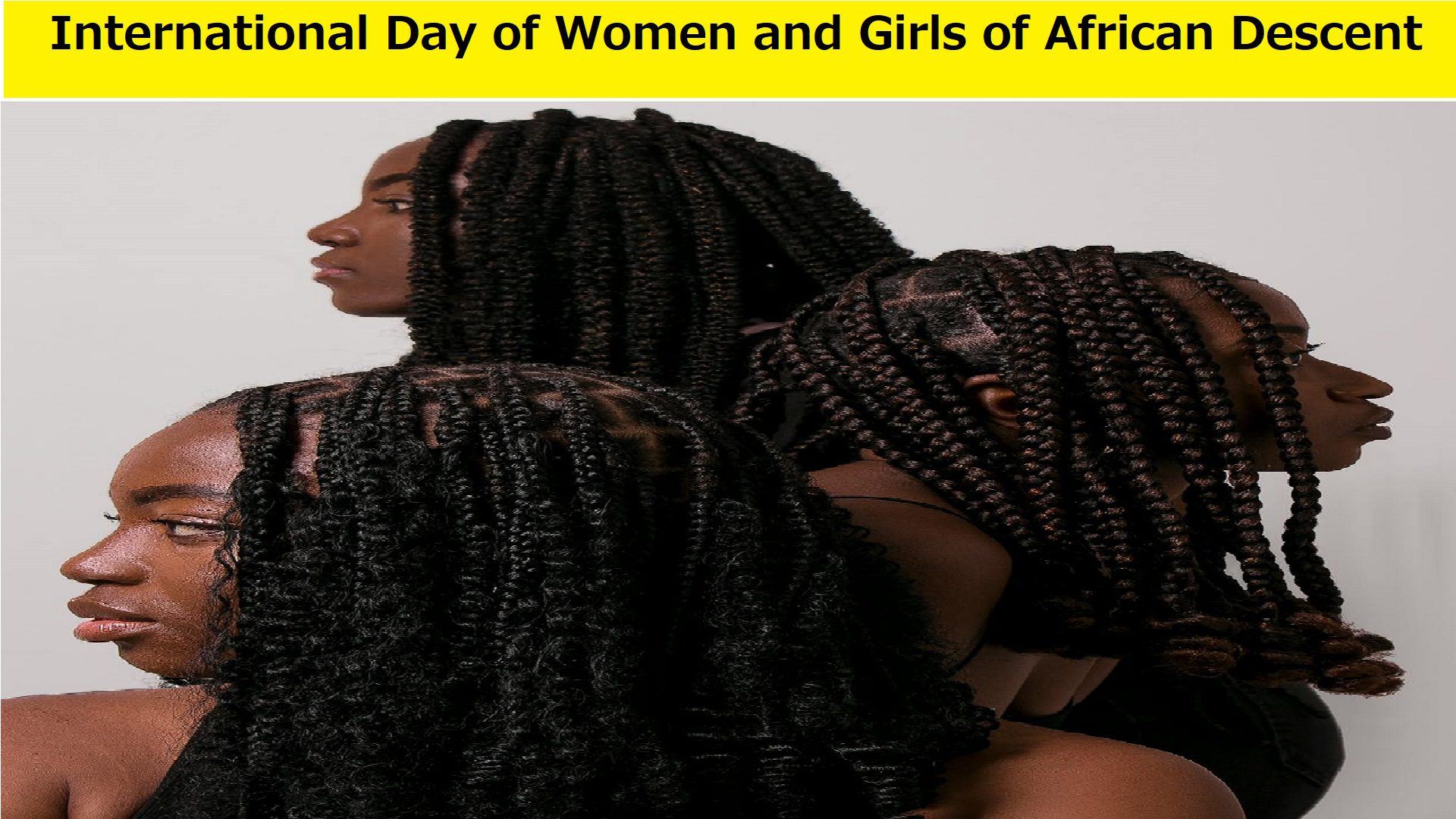International Day of Women and Girls of African Descent 25 July
The
International Day of Women and Girls of African Descent, celebrated annually on July 25th, was established by the
United Nations in 2021 to recognize the contributions, achievements, and challenges faced by women and girls of African descent around the world. This day is part of the International Decade for People of African Descent (2015–2024), which aims to promote the rights, dignity, and inclusion of African descendants globally. The day is also known as the Day of Afro-Latin American, Afro-Caribbean, and Diaspora Women, particularly celebrated in Latin America and the Caribbean.
History of the International Day of Women and Girls of African Descent
This observance was officially established by the
United Nations General Assembly in 2024 through Resolution A/RES/78/323. The proposal, led by
Brazil and Colombia, was unanimously adopted, marking a historic step toward global recognition of the unique challenges and contributions of African-descended women.
The date also commemorates the
1992 Meeting of Afro-descendant Women in the Dominican Republic, where 300 women from 32 countries united to strategize against racism and gender discrimination. This meeting laid the groundwork for decades of advocacy and solidarity.
Where International Day of Women and Girls of African Descent Celebrated
Though global in scope, the day holds particular significance in:
- Latin America and the Caribbean, where it’s also known as Afro-Latin American, Afro-Caribbean and Diaspora Women’s Day
- African nations, especially those advancing gender equity through UN partnerships
- Diaspora communities in North America, Europe, and Oceania
Celebrations include cultural festivals, policy forums, educational workshops, and digital campaigns that amplify voices and stories.
How to Celebrate International Day of Women and Girls of African Descent
Here are impactful ways to honor the day:
Host a Story Circle
Create space for African-descended women to share personal narratives. These stories foster empathy, healing, and community.
Support Afro-descendant Creators
Buy from Black-owned businesses, artists, and authors. Promote their work through social media and word-of-mouth.
Promote Mentorship
Encourage mentorship programs that connect young girls with professionals in STEM, arts, law, and activism.
Organize Panels or Workshops
Facilitate discussions on healthcare equity, education access, and leadership. Invite diverse voices and record sessions for wider reach.
💻 Share Stories Online
Use hashtags like
#WomenAndGirlsOfAfricanDescent and
#July25 to spotlight achievements and lived experiences. Always seek consent before posting.
Volunteer Locally
Join community efforts focused on maternal health, education, or economic empowerment. Even small contributions make a difference.
Why This Day Matters
Women and girls of African descent often face
intersecting forms of discrimination—racial, gender-based, and socioeconomic. These barriers manifest in:
- Higher rates of poverty and unemployment
- Limited access to quality education and healthcare
- Underrepresentation in leadership and decision-making roles
- Exposure to violence and systemic injustice
Yet, despite these challenges, they continue to lead movements, innovate in their fields, and transform communities. This day is a tribute to their
resilience, creativity, and leadership.
UN’s Call to Action
The International Day of Women and Girls of African Descent is a call to action to ensure that women and girls of African descent have the opportunities, resources, and support they need to thrive and fully participate in society.
The UN urges governments and institutions to:
- Invest in education, skills training, and mentorship programs
- Combat racial and gender stereotypes in media and policy
- Ensure representation in political, legal, and corporate leadership
- Collect disaggregated data by race and gender to inform policy
- Protect activists and human rights defenders from violence and suppression
These actions are essential to dismantling systemic barriers and building inclusive societies.
Frequently Asked Questions
Why was this day created?
To recognize the unique challenges faced by African-descended women and girls and to celebrate their contributions to society.
Is this day only for African countries?
No. It’s a global observance embraced by communities worldwide.
How is it different from other women’s days?
It centers the lived experiences of African-descended women, acknowledging their historical marginalization and leadership.
What’s the role of the UN?
The UN promotes awareness, supports inclusive policymaking, and encourages member states to take action against racial and gender discrimination.
Related

